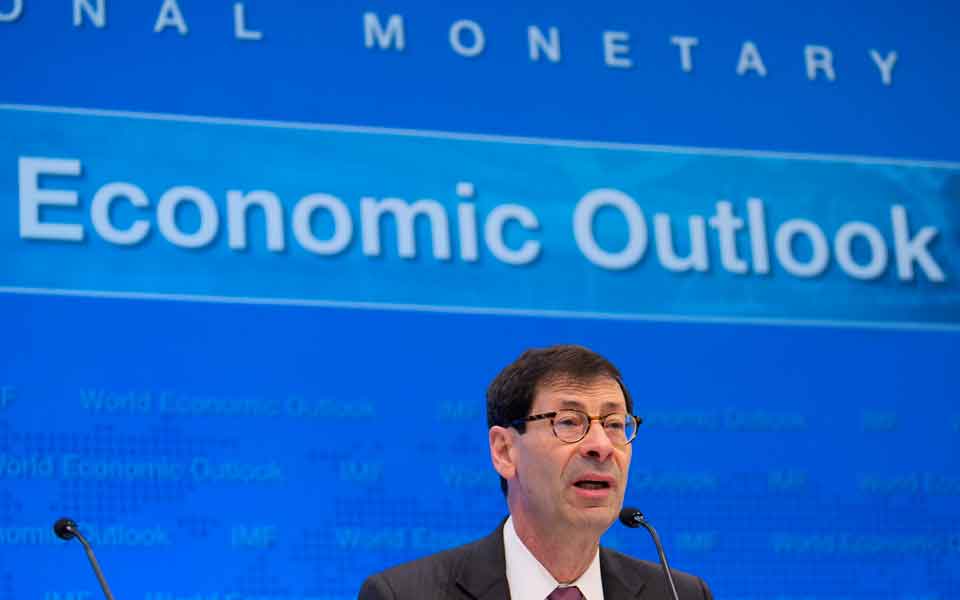IMF particularly optimistic on growth for this year and next

The World Economic Outlook report issued by the International Monetary Fund on Tuesday contains projections for the Greek economy that are even more optimistic than those of the bailout agreement and the 2017 draft budget.
The IMF claims that the Greek economy will not contract this year but instead will post marginal growth of 0.1 percent, against the government’s estimate for a 0.3 percent contraction. For 2017 the report forecasts a growth rate of 2.8 percent, provided the bailout agreement is fully implemented – i.e. even higher than the optimistic 2.7 percent foreseen in the government’s draft budget.
The Finance Ministry noted in the draft budget that there are six conditions required for its forecast to materialize: that bad loans are dealt with efficiently, that the bailout reforms are implemented, that the funds of the European Investment Project are absorbed, that debt lightening measures are taken, that the improvement in the primary surplus is consolidated and that the network of social cohesion is strengthened.
Still, the Fund is less optimistic than the European Commission on the course of GDP up to 2021: The report sees the Greek economy’s growth rate amounting to 1.8 percent in 2021, while Brussels projects growth at 2.5 percent in 2020 and 2021 before dropping to 1.8 percent in 2022. The IMF’s deteriorating outlook for Greek growth reduces the sustainability of the Greek debt and highlights the reasons why the Fund is insisting on a substantial reduction of the debt.
The report also calculates the production gap of the period 2008-16 at about 9 percent from the potential gross domestic product. In 2016 alone that gap is about 6.5 percent from the potential GDP, with Greece recording the worst performance of all IMF member-states.
The Fund expects the jobless rate to amount to 23.3 percent this year before dropping to 21.7 percent in 2017. It also forecasts deflation for the 2016 as a whole, but adds that prices will start recovering next year, with inflation coming to 0.6 percent. The current account balance is projected at zero for both this year and next.
At the same time, IMF chief economist Maurice Obstfeld stated that “the [Greek] numbers have to add up” without being dependent on politics, while asking for a “realistic” fiscal plan and a solution that will render the Greek debt sustainable.
Regarding a new lightening of the debt, Obstfeld said that all sides ought to sit down and think of arrangements that would lead to a realistic fiscal program for Greece containing “politically sustainable” primary surpluses. He added that the solution must make the debt sustainable, otherwise it would be like “kicking the can down the road.”





